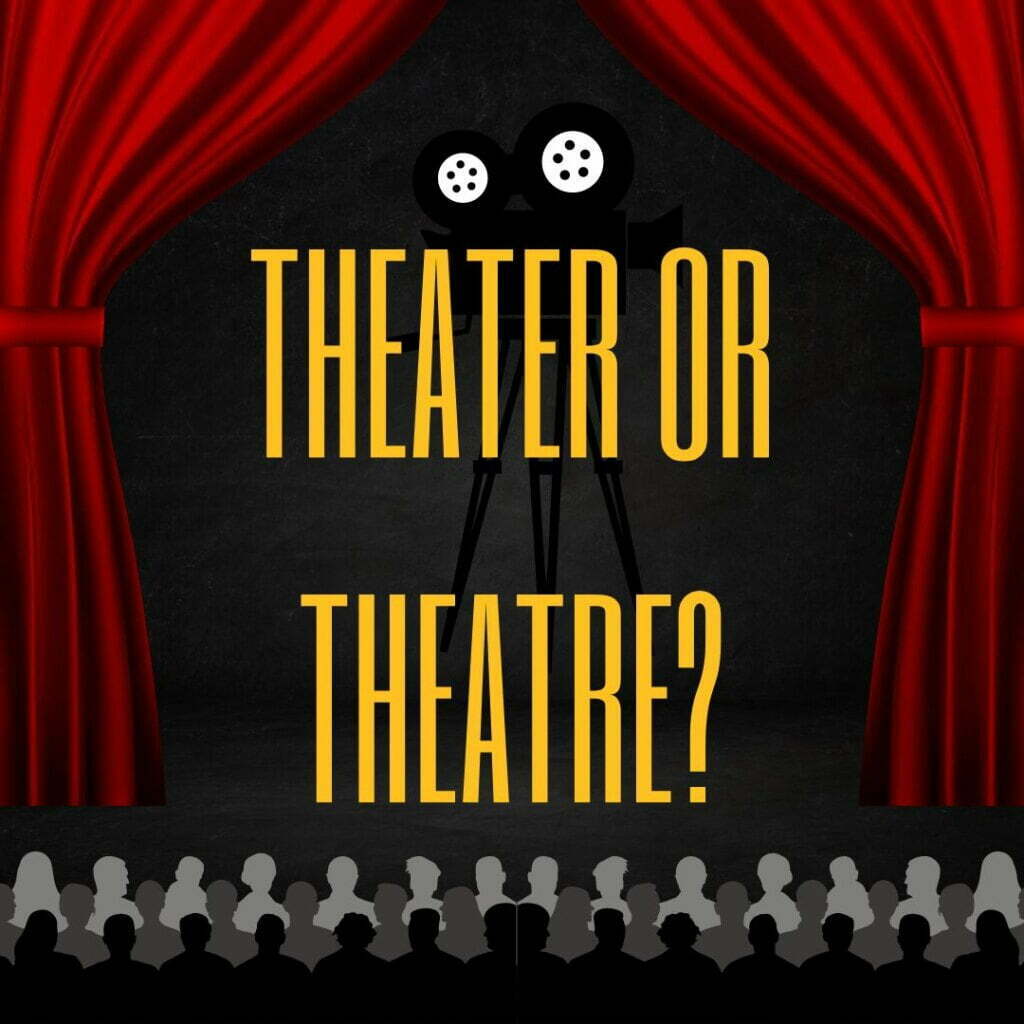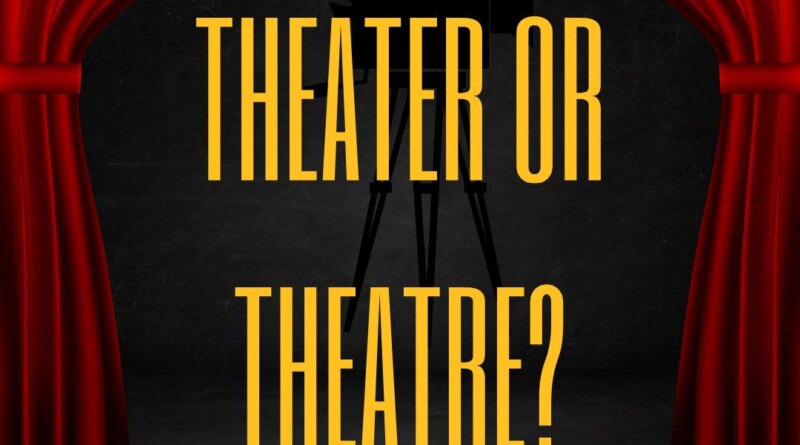Theater vs Theatre: What’s the Difference?
Theater or Theatre? The English language is tricky because it’s a patchwork of words and phrases from multiple cultures. That means there are some inevitable collisions on the printed or displayed page; the difference between the words theater and theatre is a great example.

Theater vs Theatre: What’s the Difference?
The basic difference between these two words boils down to application, but cultural nuances complicate the matter. The word theatre comes from the Greek theatron which Britannica.com defines as “a place of seeing”.
Britannica defines the word theater as being interchangeable with theatre, but in British and American culture, these two words aren’t always interchangeable.
The basic use of theatre for some people includes the notion of the theatre as the content with the theater as the delivery system for that content. The theater is the “screen”, so to speak, for the theatre which is the “film”. But for others, there isn’t any distinction.
Which is right? This question is a bit like the question of using an Oxford comma; it can be confusing if you don’t use the Oxford comma but it’s not entirely “bad English”.
Going To The Movies: Theater or Theatre?
Most of the real hair-splitting over the theatre vs. theater issue involves what country you’re using the words in. Americans seem to prefer using the word theater as a catch-all, where Britons seem to be in the theatre camp.
And in the United Kingdom, instead of using the word theater OR theatre to describe going to see a movie, they say they are going to the cinema instead.
Who Defines These Words?
In a word, culture. Language is fluid, ever-evolving, and full of surprises. The word “movies” refers to the act of showing a moving image, and when sound was added to cinema for a time the films were referred to as “talkies”.
In today’s culture, we can look to a few of the leading names such as Britannica.com and other dictionary sites to get a sense of how today’s western culture defines both theater and theatre.
Theater Vs. Theatre: Cambridge Dictionary
The Cambridge Dictionary notes that theater is thought to be the “American” usage while theater is the British version. In both cases, Cambridge defines the words as “a building, room, or outside structure with rows of seats” where people gather to view performances.
Theater Definition: Encyclopedia Britannica
Britannica.com, as mentioned above, uses both words interchangeably in its definition of theatre:
“Theatre, also spelled theater, in architecture, a building or space in which a performance may be given before an audience.” The entry also mentions that a theater “usually” has a stage area dedicated to performances and that the design of such spaces has evolved over time to better accommodate live performances and the physical demands of presenting them to a large audience.
Theatre Vs. Theater: Grammarist.com
Grammarist.com concurs with Britannica. “In most contexts, there is no difference in meaning between theater and theatre. Neither has any special definitions in general usage.” The most important thing, for Grammarist anyway, is that “most English speakers and learners need to know is that theater is the preferred spelling in American English” while theatre is preferred elsewhere.
Theater Vs. Theater: Grammarly.com
Grammarly ups the ante on this one, saying it is true that the word theater has roots in both Greek and Latin, with the French spelling being preferred for a time during the 1600 ending words with -re in general. Grammarly points out that Chaucer preferred the word theatre but William Shakespeare seems to have preferred theater. It’s hard to argue with those two literary giants!

